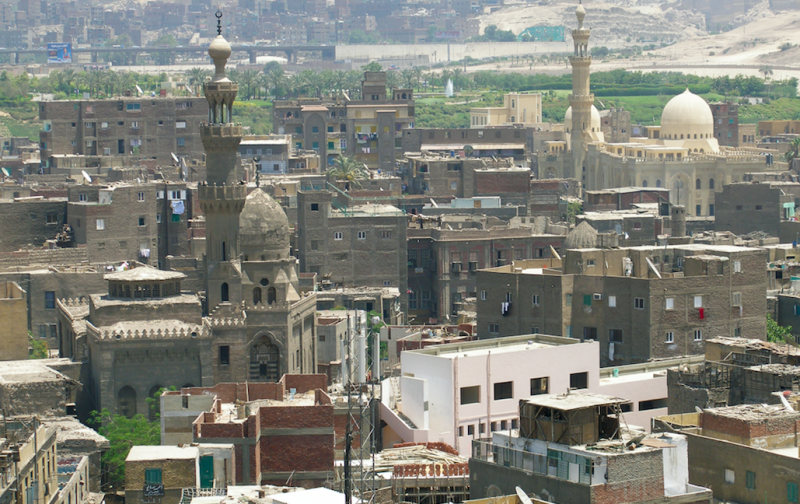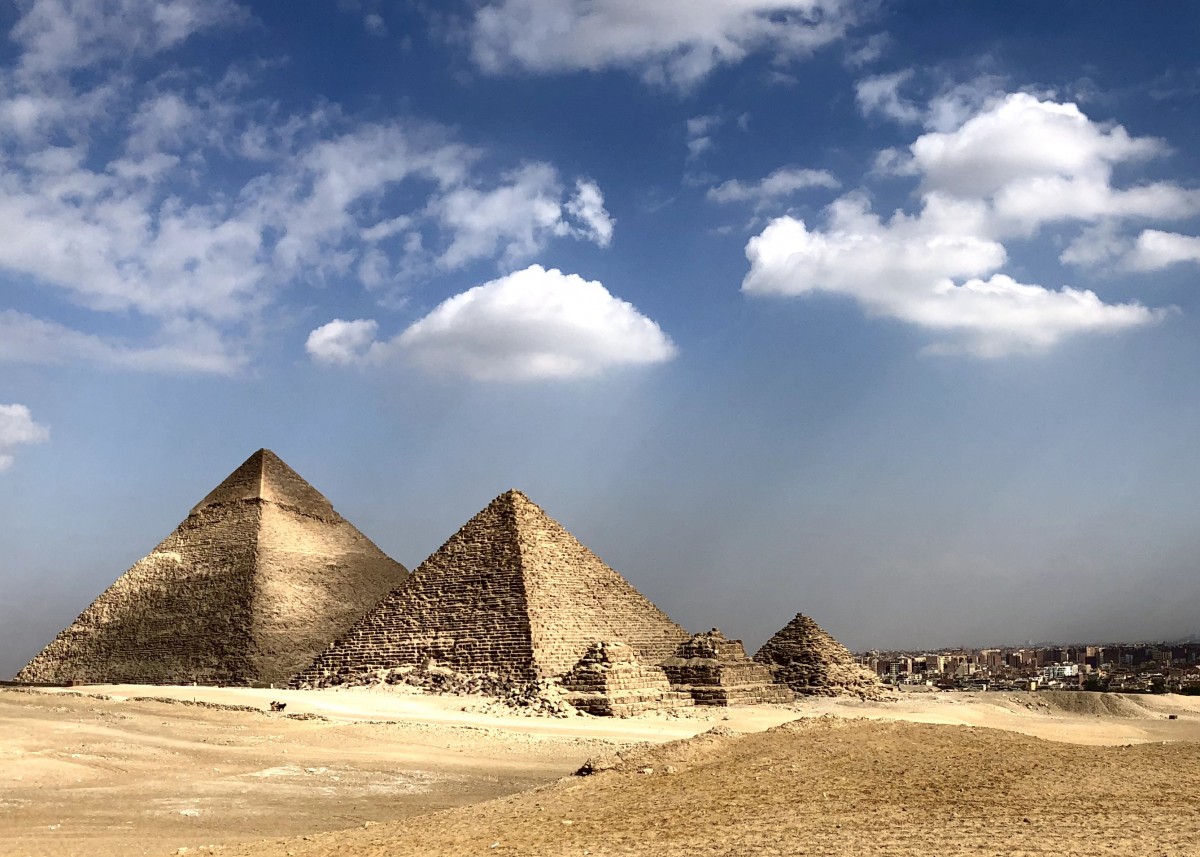Throughout their decades long history, Egyptian-Russian relations have never taken a straight line. In some periods, the two countries reached an apex of understanding, while in others they receded to to the point of severing ties altogether.
Though consular relations between Egypt and Russia began in 1784, diplomatic relations between Egypt and the Soviet Union started only in 1943.
The relationship between the two countries developed swiftly after the July Revolution of 1952 where the Egyptian monarchy was overthrown and power was taken by “free officers.”
The new government was not inherently oriented toward the Soviet Union, but hostility from the West did not leave the country’s new president, Gamal Abdel Nasser, with much of a choice.
Nasser initially tried to get both sides of the Cold War to compete with each other in attempts to buy his friendship. Nasser’s first choice was to buy weapons from the United States, but his repeated anti-Israel sermons and sponsorship of guerrillas who carried out raids against the Israeli-state made it difficult for the Eisenhower administration to obtain congressional approval to sell weapons to him.
After the US refused, Egypt signed an agreement with the Soviet Union in September 1955 to supply Egypt with more than $250 million worth of modern Soviet weapons through Czechoslovakia. The deal was a major turning point in the Cold War.
Rapprochement between Egypt and the Soviet Union continued when the latter told the countries of the tripartite aggression (Britain – France – Israel) to end the war.
The Soviets also helped the Egyptians modernize their armed forces, construct the High Dam and supplied Cairo with thousands of experts in building productive institutions, factories and power lines. As a result, the 1950s and 1960s were the golden age of relations between the two countries.
However, when President Anwar Sadat came into power, relations between the two countries deteriorated after he eliminated the “centers of power” that were oriented toward the Soviet Union in May 1971 (known as the correction revolution).
Relations deteriorated further with the Egyptian decision to expel the Soviet experts in 1972 after Moscow refused to hand over the weapons it had agreed to in 1971. Sadat made a decision to cut ties in 1976, a decision which Egypt maintained until Sadat’s assassination 1981.
When President Hosni Mubarak came to power that year, relations gradually began to improve.
With the collapse of the Soviet Union, Egypt initiated diplomatic relations with Russia in 1991.
During the Mubarak era, relations were markedly improved, translating into cooperation agreements in all fields. The Egyptian President visited Russia twice in 2001 and 2006, while Russian President Vladimir Putin visited Egypt in 2005.
With the outbreak of the Egyptian revolution in 2011, Moscow refused to adopt any position against the Egyptian president, paying lip-service to the Egyptian people’s aspiration for democracy. Russia even sent envoys to Mubarak even two days before he stepped down.
The Russian position was founded on its fear of the collapse of the situation in Egypt and the spread of extremist groups, alongside its preference was for a strong and secular regime in Cairo.
However, with the election of President Mohamed Morsi (who belongs to the Muslim Brotherhood which Moscow considers a terrorist group), it nonetheless reluctantly treated him as the representative of the Egyptian state: it simply could not deny the state of affairs in such an important country in the Middle East.
Moscow therefore it congratulated Morsi on his winning the election and even arranged a meeting with President Putin in Russia.
With the outbreak of a revolt against Morsi in June 2013, Russia clearly stood with the demands of the Egyptian people against him. Indeed, President Putin received then-Minister of Defense Abdel-Fattah El-Sisi, who led the army’s response to the demands of the masses against Morsi in February 2014. After that, relations between the two countries were further strengthened when Sisi was elected president, the two leaders exchanging visits more than once.
Russia was motivated to consolidate relations with Cairo because Egypt is a strategic ally of the United States and one of the pillars of stability in the Middle East. Russia’s restoration of its influence in the region would not be possible without strengthening its relations with Egypt, Turkey and Iran.
On top of that, Moscow’s desire to expand into warm waters would be impossible without a foothold in Egypt and Libya.
Although Cairo rejected Moscow’s request to establish an air military base on the Mediterranean coast (refusing to establish military bases for a foreign country is an established principle in Egyptian politics), it won Egyptian approval to allow Russian aircraft to use the Egyptian bases and airspace. This accord gave Russia a greater presence than it had before 1973.
While this agreement gave Egypt a mutual right to use the bases and airspace of Russia, Cairo was granted the restoration of Russian tourism, which had been cut off after the crash of a Russian plane in Egypt in 2015.

Wikipedia
However, it is evident that Moscow was the biggest winner given that it secured contracts to establish nuclear reactors and several arms deals with Cairo.
Russia’s most important gain was getting a back door to Libya and further expansion in the southern Mediterranean which enabled Moscow to exert pressure on Europe.
For its part, Egypt was able to take advantage of having Moscow as an international supporter and thus address the legal doubts surrounding Morsi’s ouster.
Russia also provided Egypt with an alternative by which a diversification of arms resources could begin, especially after the United States used this card to pressure the new regime when military aid to Egypt was suspended in July 2013 (this aid had been supplied under the Egypt-Israel Peace Agreement in 1979).
In addition to all of this, Cairo viewed its relationship with Moscow as a way to get Washington to ease off on the new government.
On the other hand, as a result of the increasing Russian role in the region, specifically in Syria and Libya (the most important countries for Egyptian national security), the Egyptian decision-maker had to consolidate a close relationship with Moscow in order to coordinate and bring the Egyptian vision into consideration.
However, it appears that relations between Egypt and Russia will not reached the same level as those of Cairo and Washington for many reasons.
The first is that Russia is fully aware that Cairo only came to Moscow as a result of exceptional circumstances: the turn was not a strategic direction.
The second reason is that Russian interests converge more with other regional players whose priorities conflict with Egyptian interests.
Perhaps the clearest evidence for this is the Turkish-Russian rapprochement in Syria, and more recently, in Libya due to Putin’s gas diplomacy, in which Turkey plays an integral role as a transit country.
At this point, Cairo cannot reshape its strategic alliances to satisfy Moscow, nor can it play on the contradictions of the Middle East , because if it does so, it will lose the most important advantages of Egyptian foreign policy: giving priority to the rules of International law in establishing the political position of the state, prioritizing the stability of the Arab world and refraining from exploiting its neighbors or their wealth.
There is no other regional player that has such a clear and strong advantage as Egypt does in this regard.

















Leave a Reply